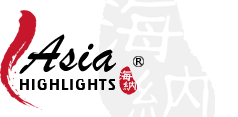February is one of the coldest months of the year in South Korea. However, the days are generally clear and starting to get warmer from the nail-biting temperatures of January. The country experiences average highs of 10°C (50°F) and average lows of -5°C (23°F).
February is a good month to visit South Korea if you wish to get away from the crowds of the spring and summer months. Some crowds can be seen in the country's famed ski resorts considering February attracts winter sports enthusiasts, but most major tourist hotspots are free of large crowds and hordes of tourists, thereby resulting in generally favorable prices when it comes to food, accommodation, and entertainment.
Packing essentials for your trip to South Korea in February ought to include plenty of warm weather clothing like sweaters, coats, and scarves. Ditch the thin fabrics and focus, instead, on layering up to withstand the cold temperatures. Packing a pair of high-quality, waterproof, boots to keep your feet dry from snow or rain will also go a long way in making sure you're in good spirits when exploring the cities of South Korea.
To get an in-depth understanding of what to expect insofar as weather conditions are concerned during February, keep reading below.
South Korea Weather in February: Overview
- Average temperature range: -5°C – 10°C (23°F – 50°F)
- Precipitation: 27 mm (1 inch) of snow/rainfall in Seoul; 77 mm (3 inches) of rainfall in Jeju.
- Rainy/Snowy days: 6 in Seoul; 10 in Jeju.
February remains one of the coldest months of the year in South Korea. Maximum daytime temperatures in the capital city, Seoul, can reach up to 4°C (39°F) whereas the city's minimum nighttime temperatures can drop to -5°C (23°F). There is likely to be more precipitation in the form of snow and rain towards the end of February than there is towards the beginning of the month.
The southern island of Jeju, on the other hand, experiences weather conditions far more favorable for travelling. Although 77 mm (3 inches) of rainfall can be expected on Jeju Island in February, the daytime temperatures sit around a more bearable 9°C (48°F).
February is a very good time of year to visit South Korea if you wish to experience Seollal, the Korean New Year, spend time on the slopes skiing, or experience some of the lovely snowy landscapes of the country.
Discover real reviews of Highlights Travel Family's best-rated service across trusted platforms.

 
|
Chiang Mai Tour
Ms Sirin is so much fun to be around, very knowledgeable about Thai history and takes amazing pictures of your experiences that she shares with you. More
Diane, Apr 2025
|
Asia Highlights make any trip a VACATION!
I had the pleasure of booking my Southeast Asia trip through Asia Highlights, and I cannot speak highly enough about the outstanding service I received from Kaya. From the very beginning, Kaya demonstrated professionalism, attention to detail, and a deep understanding of what makes a trip truly memorable. More
Mark Rogers, Apr 2025
|
Amazing service - Thailand trip
We had a lovely experience with the service received from all the team of Asia Highlights (travel specialist/coordinator, guides, drivers). In particular, the representative that organized our trip, Jimmy, was amazing. He was able to prepare our trip in a very short notice and customize it to satisfy all our requests. He was knowledgeable and always replied very fast. We were very pleased with his service and we highly recommend the agency. More
Yanelis, Mar 2025
|
Weather of South Korea's Major Cities in February
| City | Min. Temp | Max. Temp | Rainfall |
|---|---|---|---|
| Seoul | -5°C (23°F) | 4°C (39°F) | 27 mm (1 inch) |
| Busan | 0°C (32°F) | 10°C (50°F) | 53 mm (2 inches) |
| Jeju Island | 2°C (36°F) | 9°C (48°F) | 77 mm (3 inches) |
| Taean | -5°C (23°F) | 5°C (41°F) | 34 mm (1.5 inches) |
| Gyeongju | -1°C (30°F) | 7°C (45°F) | 39 mm (1.5 inches) |
| Daejeon | -5°C (23°F) | 6°C (43°F) | 36 mm (1.5 inches) |
| Incheon | 4°C (39°F) | -4°C (25°F) | 30 mm (1 inch) |
Best Places to Visit in South Korea in February
1. Nami Island
Whatever you do, don't miss the opportunity to visit Nami Island. The island is the setting of many a Korean drama and would prove the ideal place to spend Valentine's Day. You might know it from the famous Korean drama, Winter Sonata.
The half-moon shaped island is home to gingko, pine, and redwood trees and in the white of winter, is a romantic destination unlike any other.
2. Seoul
Regardless of the weather, it's always a good time to visit the capital city of Seoul. There are plenty of world-famous ski resorts close to the city if you're into winter sports. Some of these include Yongpyong Ski Resort, Oak Valley Ski Resort, and Vivaldi Ski Park – but do remember to book in advance as they can get quite crowded.
Even if you're not into skiing or snowboarding, Seoul offers visitors a lot to do. A day trip to the DMZ, North and South Korea's heavily guarded "no man's land", and a visit to Gyeongbokgung Palace are both must-dos.
3. Incheon
Incheon, or Inchon, is another booming metropolis located close to the capital of Seoul. The port city is home to some world-famous parks like Songdo Central Park and Incheon Grand Park that take on a special wintry charm brought on by the snow, making both absolute dreams to spend time in and relax.
It's also worth mentioning Jeondeungsa Temple, one of the oldest temples in the region. The temple is located on an island of special cultural significance to the Korean people. The mountain it's on is guarded by Samnang Fortress, a fortress built to protect the land from foreign invaders.
February Crowds and Costs
February is still very much part of the low season in South Korea. This means that it won't be as lively in the country as it usually is around spring or summertime, but the advantage is that it's also not as packed or crowded in the major cities and tourist attractions. This means not having to wait for hours on end in long lines or paying more than average when it comes to food or entertainment.
The only exception to this general rule of thumb can be seen in and around South Korea's many famed ski resorts. February, being a peak winter month, attracts winter sport enthusiasts from all over the country and the globe to the country's many magical slopes for skiing and snowboarding.
These ski resorts can be especially packed during the weekends, with some ski resorts even placing daily limits on how many visitors they allow on their slopes, so do book in advance if you plan on spending time at one of these resorts and be prepared for things to be less affordable.
February Events in South Korea
Korean New Year: The Korean lunisolar New Year, also known as Seollal, is perhaps the most important traditional holiday celebrated in both North and South Korea, and the globe alike. Seollal is usually observed over three days in either January or February, and the actual days of observance change every year, dependent on their placement in the Lunar Calendar.
This is a holiday of utmost importance to ethnic Koreans with most people in South Korea taking the time to go back to their villages or hometowns to spend time with loved ones, dressing up in Hanbok or traditional Korean clothing, sharing a grand feast together, and exchanging gifts with those near and dear to them.
Taebaeksan Mountain Snow Festival: If you're in the mood to check out some of the best ice sculptures on display of any place on the planet, do make sure you make your way to Taebaek city, located at the southern tip of Gangwon-do Province. The snow festival has been in existence since 1995 and doesn't only house some of the best ice sculptures available for public viewing but also hosts a very lively and enjoyable parade in Taebaek city's streets.
What to Wear in South Korea in February
February can get very cold in South Korea and as such, we recommend you avoid packing thin fabrics and short-sleeved clothing articles as these won't go the distance in keeping you warm and comfortable.
Instead, focus on dressing in layers. This will make sure you're nice and bundled up, ready to explore the streets and side-streets of Korean metropolises like a true local. Your packing essentials should include plenty of thick sweaters, long coats, scarves, winter hats, jackets, socks, and high-quality gloves. Thick, waterproof, boots are also a good idea as these will help keep your feet dry from the snow or rain.
Explore South Korea with Global Highlights
Planning a trip to South Korea? Look no further! Our team of travel experts at Global Highlights are here to ensure you have the time of your life when visiting splendid South Korea. With thousands of planned tours under our belt, it's safe to say our specialty is curating trips that go above and beyond in remaining memorable and meaningful for you and your loved ones. We'll keep everything from weather conditions to special interests in mind, so that you can just relax and enjoy the journey!
Get Inspired with Some Popular Itineraries
At Asia Highlights, we create your kind of journey — your dates, your destinations, at your pace. You can have any trip tailor made for your travel.



